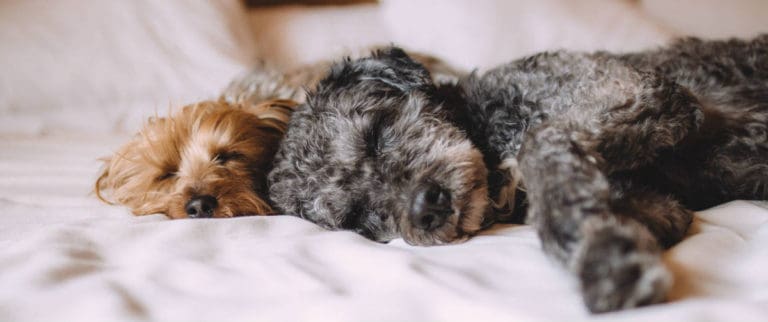Shihpoos Can Make Good Companion Dogs for Some Autistic Children
Children with autism and their families can benefit greatly from companion dogs, service dogs or therapy dogs. We have a child who was diagnosed as high functioning autistic at age nine and have seen him grow close with our first Shihpoo puppy. Do Shihpoos Make Good Companion Dogs and Service Dogs for Kids with Autism?…
Children with autism and their families can benefit greatly from companion dogs, service dogs or therapy dogs. We have a child who was diagnosed as high functioning autistic at age nine and have seen him grow close with our first Shihpoo puppy.
Do Shihpoos Make Good Companion Dogs and Service Dogs for Kids with Autism?
Shihpoos can make great great companion dogs or even service dogs for children with autism. Shihpoos are highly intelligent, are sturdy for their size, have a loving and affectionate temperament, and can be effectively trained to provide a calming influence on children with autism.
What does a Shihpoo Need to Do to Be a Good Companion or Service Dog?

First of all, a companion dog can be any dog that provides emotional support to individuals (adults or children) in need. They need no special training or certification, although an Emotional Support Animal letter from a licensed mental health professional can make it easier to take the companion dog into stressful situations (medical and dental appointments, for example).
A Service Dog is a dog that has gone through specialized training to include skills such as recognizing and de-escalating emotional meltdowns or interrupt self-harming behaviors in individuals with autism.
As a companion dog, Shihpoos possess five important qualifications:
- Shihpoos can be highly intelligent and thus relatively easy to train
- Shihpoos generally have an affectionate and loving temperament and can be very gentle with children
- Shihpoos are not big barkers and can learn the “quiet” command relatively well (important for autistic children with intense sensitivity to sound)
- Shihpoos can be playful companions on cue while also settling down to nap or rest as needed
- In spite of their relatively small size, Shihpoos are sturdy and tough with a patient nature
As a companion or service dog, Shihpoos could accompany an autistic child to doctor visits, school activities, shopping and while traveling. Any size and breed of dog can be trained as a companion or service dog.
A Shihpoo must go through specialized training to be certified as service dogs. Inheriting an intelligent nature from their parents (particularly their Poodle parent), Shihpoos can be trained to perform much more than just tricks and the basic commands.
Additionally, since service dogs accompany their autistic child into many public situations, the dogs must be obedient and well-mannered. With proper training, Shihpoos can fill this role well.
Shihpoos have another advantage over virtually all other breeds when it comes to helping children with autism: they are just so darn cute! When in public, Shihpoos can’t help but attract the attention of everyone from passers by to friends and classmates. Consequently, Shihpoo companion dogs and service dogs can act as great catalysts to social interactions for children with autism.
Why does a Shihpoo Make a Good Companion Dog for Children with Autism?
Besides all the reasons cited above, a Shihpoo can be a fantastic companion dog for children with autism. First of all, children with autism are more likely to have allergies than other children, so finding a hypoallergenic dog breed will be critical to protecting your child’s respiratory health.
Shihpoos are the offspring of two well-documented hypoallergenic breeds: a Shih Tzu and a Poodle. Whether your Shihpoo has long wavy hair or very curly hair, he or she will still be among the least likely dogs to cause allergic reactions. Keep in mind that hypoallergenic is not the same as non-allergenic. Instead, it means low likelihood of causing allergies.
Since parents of children with autism are often already “taxed to the max” with the demands autism places on them, adding another family member to the home (the Shihpoo) needs to be a good choice for the parents as well as the child.
Many parents worry about dogs shedding all over the house, tracking mud in and adding to the already-present chaos of family life. Shihpoos are highly non-shedding, dropping only the occasional hair here and there, though you may not be able to tell the difference between your own and your puppy’s hair on the couch.
Parents will also worry about the required grooming of a companion or service dog. The time and effort for a Shihpoo’s grooming and care needs depend largely on the trim you choose to give the dog. With a basic cut (also known as a “puppy cut” or short trim), grooming can be minimal.
In fact, your autistic child can easily bathe your small Shihpoo in the tub or a large sink in less than 10 minutes every week or two. Brushing at night can become a calming and bedtime preparation routine for the Shihpoo and autistic child alike. As the child learns to gently and slowly brush the puppy, he or she learns the importance and joy of being responsible for someone they care about.
Additionally, as a small dog (8 lbs to 18 lbs), Shihpoos are easy to clean as they come back in the house if you feel the need to wipe their paws or dry them off during the rainy season. Picking them up or carrying them to the tub is equivalent to carrying a bowling ball (just way more cuter).
Finally, another advantage Shihpoos have as small dogs is that they can be easily trained to sleep either on or nearby your child’s bed. Known as the “teddy bear dog,” Shihpoos make great bedtime companions for children who have a hard time going to bed by themselves.
Do Shihpoos Make Good Companion Dogs for ALL Children with Autism?
When it comes to companionship, size does not always matter. Most children with autism can quickly adjust to a companion dog of any size and learn to give it gentle and loving affection. Shihpoos can provide that same gentleness and affection in return.
It is worth noting that if your autistic child struggles with emotional meltdowns that involve the complete loss of control, having a companion dog, regardless of size, will not guarantee that the child will stop having meltdowns. Presenting a small or large dog to a child in meltdown mode will likely not help the child but will likely frighten the dog.
However, as a cuddle buddy breed, Shihpoos can help prevent some situations that might otherwise lead to meltdowns.

How Much Does It Cost to Train a Shihpoo to Be a Service Dog?
While a Shihpoo needs no specialized training to be a “companion dog,” it would need to undergo the same training any other dog breed would go through in order to become a certified “service dog.”
Before even starting the specialized training courses, which can cost upwards of $10,000 or more, a potential service dog will need to go through multiple obedience school training sessions for them to be ready for the more intensive service dog training.
Unfortunately, neither private insurance companies nor Medicare/Medicaid pay for training service dogs. You may find nonprofit agencies nationally or in your area that offer assistance, though you should still expect to have out-of-pocket expenses.
How Long does It Take to Train a Shihpoo to Be a Service Dog?
A Shihpoo would likely need to go first through obedience school for up to a month plus additional ongoing training prior to starting service dog training. Training your own Shihpoo to become a service dog, ready for public access with your child, would likely take at least two years. Typically requiring 120 hours or so of training, a Shihpoo might be certified as a service dog with one to two hours of daily training in a year and a half.
Does My Autistic Child Need a Companion Dog or a Service Dog?
Given the cost and the time investment required to certify a Shihpoo as a service dog, you may very likely opt instead for a Shihpoo to serve merely as a companion dog. Instead of spending thousands of dollars on the specialized training, you can spend a fraction on general obedience and behavior training as needed.
In cases of severe behavior challenges related to autism, a service dog may be the better option. If so, starting early is best because of the time requirements.
Related Questions
How do you get an Emotional Support Animal (ESA) letter for your Shihpoo to be your child’s service dog in public?
Talk with your Licensed Mental Health Professional about the benefits of obtaining from them and ESA. This professional can include your autistic child’s psychiatrist, psychologist, counselor, clinician, therapist, or even his or her primary care physician.
How do you find a trainer for your Shihpoo to become a service dog? There is no government standardized training requirements for service dogs, although there is a national registry for certified service dogs at usaservicedogregistration.com, where you can also find a tool to locate a service dog trainer near you.
Published September 21, 2019







